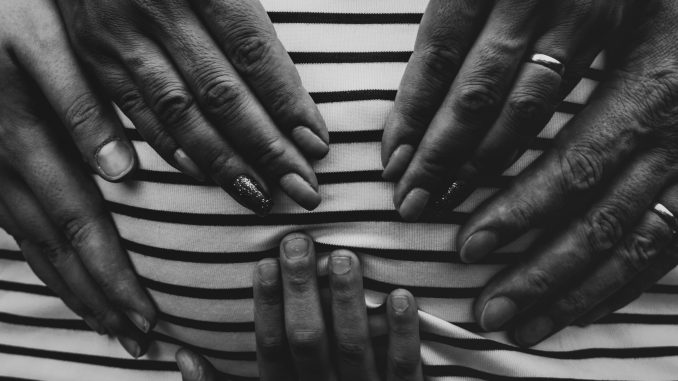
By ANNABELLE PAULINO
In honor of both Black History and Women’s History Months, New York City Public Advocate Jumaane D. Williams hosted a conversation on March 16 to discuss birth justice for Black and Brown mothers.
The Public Advocate recently introduced legislation designed to help Black and Brown women receive equitable maternal healthcare. Called the Respectful Care at Birth Bill, it creates provisions to inform, educate and support women’s birthing rights. A second bill he introduced targets parents who are returning to work after birthing children, detailing how their employer has to assist in the process to reorient parents after they have a child.
On March 22, Mayor Eric Adams announced a $2 million citywide program to provide free access to birth assistants, known as doulas, to women in high-needs neighborhoods across the city. He said the program aims to reduce the gaps between whites and women of color in infant deaths and other negative pregnancy outcomes.
According to the Centers for Disease Control, in the United States, black women are three to four times more likely to die of pregnancy related complications than their white counterparts and, in New York City , black and brown women are eight to 12 times more likely to die during childbirth.
The panel, moderated by Xamayla Rose, Deputy Public Advocate for Civic and Community Empowerment, brought together three experts to discuss the current issues involving Black and Brown women’s maternal rights, giving them a chance to describe what they are advocating to reduce complications that lead to death during childbirth.
Kimberly Allers, Founder of Irth, developed an app with crowd-source reviews and ratings of maternity and pediatric doctors and birthing hospitals, which is geared towards Black and Brown women. The app helps women with location and filters reviews by race, ethnicity, income or sexual orientation.
The panelists criticized what they said was a narrow lens around reproductive rights, and instead advocated a broader reproductive justice framework. The conversation allowed an understanding of the intersections of the inequities that Black and Brown women have to go through.
“Prior to this framework, we were stuck in a reproductive rights conversation, which was narrowly focused on the rights to not get pregnant, the right to end the unwanted pregnancy, but not the broader sense of rights, the intersections of race, class environment, your right to parent, to be healthy, and to feel safe,” said Allers.
On December 7, 2021, Vice President Kamala Harris convened the White House’s first-ever Maternal Health Day of Action, where the Irth app was mentioned by their new partner, the March of Dimes.
Irth is being used as “a community mechatronic monitoring mechanism, a technology-based way to constantly get community feedback,” said Aller, and a way, like Yelp, to collect and publicize public comments. Mechatronics is used in manufacturing, health care, space exploration, and in tools that make our lives easier on a day-to-day basis such as an app, or in this case, the Irth app.
Nogozi Moses, Executive Director of Brooklyn Perinatal Network, has been a maternal rights advocate for Black and Brown women for over 30 years. She said the issues of racial justice and social justice should be a movement.
“The inequities that we experience require a paradigm shift in influence, power, and resources. There’s still some ways to go,” Moses said. “There’s been little change, certainly not enough change. Women are still not being respected the way that they should.”
Fighting for women who can’t speak for themselves in the labor room, while in pain or not knowing how to advocate for themselves, is a concern for Moses. Her focus is on empowering community based organizations and advocates who see these women in the frontlines, and know how overburdened, distressed, and under-resourced they are.
“To get a place at the table where the decisions are being made about the resources and the policies that affect the inequities and to start the conversation that we are addressing today,” id Moses’s goal.
When Chanel Porchia-Albert, Founder of Ancient Song Doula Services and a commissioner of the city’s Commission on Gender Equity, got into being a doula, the biggest conversation was about infant maternal mortality rate back in 2008.
According to the Centers Disease Control, during the pandemic, the maternal mortality rate has risen by 12% and has shown that it’s not just a matter of looking at just one individual or one organization or one answer to the problem.
“What we really need is a complete overhaul of the system in the ways in which it functions from forms of education of everybody who comes in contact with someone who is pregnant, to the institutions, and the policies that they have within them when it comes to when someone presents they’re pregnant and when they present themselves during the postpartum period,” said Albert.
These three women together call for action to continue the fight for maternal rights for Black and Brown women. Moses asked the audience to sign a bill called the Chisholm Chance Act, which creates an administrative hub in Kings county and Bronx county to coordinate community-based organizations and community health workers to combat the maternal health crisis.
The overuse of technology in those spaces is to the detriment of individuals who are trying to center themselves during their pregnancy and during the postpartum period, they said.
Allers, reminded audiences of the power Black and Brown women have to continue the fight for birth justice by putting in their reviews on the app.
“Resilience is a powerful action which needs to continue to survive
whether it is being leveraged on a digital platform like Irth through community engagement and through policy advocacy,” said Allers.
